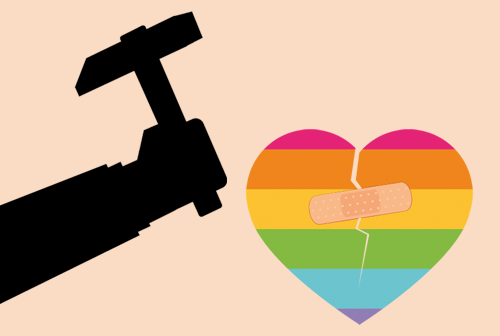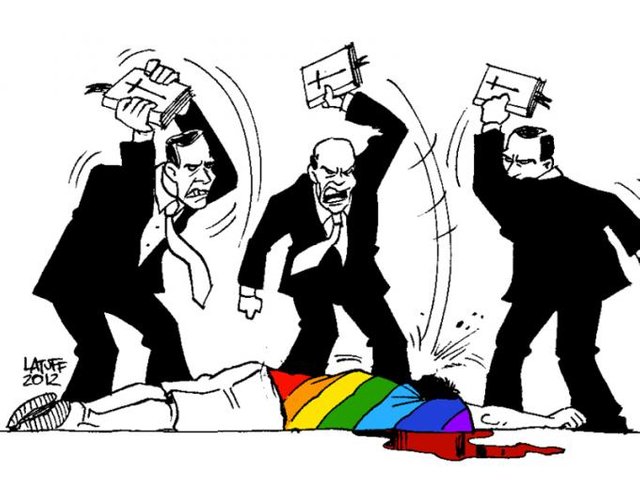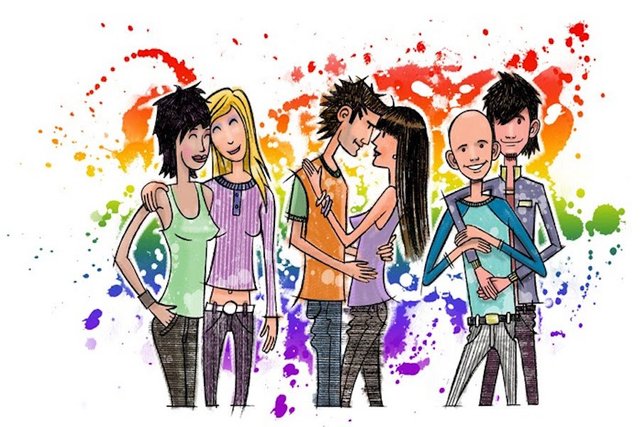Homophobia is a sickness

Homophobia is fear, hatred, distrust or discomfort in front of lesbian, gay or bisexual people. The "biphobia" is fear, hatred, distrust or discomfort in front of people who are specifically bisexual. Similarly, transphobia is fear, hatred, distrust or discomfort in front of transgender, intergender or people who do not follow traditional gender norms.
These people who have very negative opinions of homosexuals also have higher levels of psychoticism than those who are tolerant, therefore According to Emmanuele Jannini, principal investigator and endocrine and sexologist at the University of Rome Tor Vergata, "the study opens a new avenue of research, where the real disease to study is homophobia. "
Research on the disease of homophobia is a complex issue. Some studies have suggested that people with a negative and visceral attitude towards gays and lesbians are often hidden homosexuals. Other studies, however, question that idea and argue otherwise. Other factors, such as religion, hypermasculinity and misogyny, seem to play a crucial role in homophobic attitudes, according to Jannini and his colleagues in an article published in The Journal of Sexual Medicine.

But until now, no one had carefully analyzed the mental health and psychopathology of homophobic people.
In the new research, the scientists asked 551 Italian university students between the ages of 18 and 30 to answer a questionnaire designed to assess their levels of homophobia as well as their psychopathology, including questions to find out their levels of depression, anxiety and psychoticism The issues that were related to measuring their level of rejection of gays, required participants to rate on a scale of five points, their agreement or disagreement with questions like if gays made him nervous, if they believed that gay people should not work with children, if they liked jokes related to gays or lesbians or if they cared if their friends were homosexual or straight.
The students also answered questions about the "attachment" they feel towards others, in order to classify how each of them lived personal relationships. Affection or "healthy" friendships are those in which people feel comfortable approaching others and conversely. In contrast, the "unhealthy" ones show people trying to avoid intimacy, they are too sticky or insecure.
Finally, the students answered questions related to their strategies to deal with unpleasant situations. In this case, defense mechanisms can be healthy (what we would define as a mature attitude) or unhealthy (immature). A mature attitude, for example, would be to control emotions and not depend on the opinion of others. The immature could include impulsive actions, passive aggressions or the denial of a problem.
Homophobia and anger
According to the researchers, the better a person's mental health is, the less likely it is to be homophobic. Those people who live their relationships in an unhealthy way, were significantly more homophobic than those who had greater emotional intelligence. The same thing happened with those who faced unpleasant situations in an immature way: they showed a greater visceral and irrational rejection towards gays and lesbians.
Likewise, the researchers found a high link between the homophobes and the more dysfunctional personalities that showed attitudes of hostility, anger or psychotism. According to Jannini, "homophobia is a disease induced by culture." The researchers are currently conducting the same study with students from Albania. They are also investigating how the fear of not being "man enough" could influence homophobic attitudes.

source of information:
http://www.quo.es/ser-humano/la-homosexualidad-no-es-una-enfermedad-la-homofobia-si
As much as I agree with all of this, and it's a great post in general, you can't copy someone else's article or any significant part thereof without explicit permission from the content's owner. It is plagiarism.
Aunque estoy de acuerdo con todo esto, y es una gran publicación en general, no puede copiar el artículo de otra persona ni ninguna parte importante sin el permiso explícito del propietario del contenido. Es plagio.